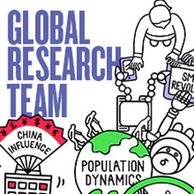Recent advances in gene editing have generated significant interest, not only among the scientific community, but also in the wider media. While the technology, which involves modifying a cell’s DNA, is still at an early stage of development, it has a wide range of potential applications. These include advances in health care, agrochemical production, livestock and crop breeding, and even DNA-based data storage.
In this blog, we discuss the current state of development of this technology, and explore some of the investment opportunities within the health-care sphere.
What is gene editing?
In a practical sense, gene editing is the use of ‘molecular scissors’ to cut DNA and enable genetic sequences to be added, deleted or inactivated within a cell. This is made possible by using a well-characterised enzyme called ‘CRISPR-Cas9’ (hereafter called Cas9), linked to a targeting mechanism. The Cas9 scissors, together with normal cell-repair mechanisms, enable precise cutting and manipulation of DNA in living cells. Other DNA-editing methods have been developed, but the ease of use and relatively low cost of the Cas9 system has ensured its wider adoption.
As with many early-stage technologies, the issue of who controls the key patents to the technology is still being worked through. Other issues such as the risks of off-target effects in cells and the durability of the changes that are made still need to be ironed out, but it’s already clear that gene editing has the potential to change the way some diseases will be treated.
Much of this work has yet to reach the clinic, but early work in some diseases is now beginning to be explored. As gene editing can precisely change a gene’s function, its early use is being focused on patient groups where single-gene changes could provide a material benefit. These include diseases such as beta-thalassaemia, sickle-cell disease, and enzyme-storage diseases such as mucopolysaccharidosis. Although these diseases represent relatively small groups of patients, they have very high unmet needs. Evidence that the technology can be used safely and effectively in these patient groups may open up its use in other areas such as the treatment of cancers and infectious diseases such as HIV.
The China dimension
Much of the recent focus for investors has been on the progress being made by leading US and European companies. However, gene editing in China is also progressing rapidly owing to lower regulatory requirements and active support from the government. For example, at the beginning of this year there were already reports of a number clinical studies testing Cas9-edited cells to treat various cancers. While it appears Chinese regulators may currently be more lax than their US counterparts, it is highly likely that more stringent controls on the use of these investigational therapies will be introduced if the trials prove effective.
Investment implications
Several biotechnology companies have already been established to exploit this technology, and a number of global biopharmaceutical companies are showing an interest in this area. The development and application of gene editing will clearly be associated with near-term risks while its usefulness becomes more broadly established. However, as with many disruptive technologies, it offers significant investment potential. Our in-depth sector research and engagement with companies suggests a number of businesses are positioned to benefit from gene editing.
This is a financial promotion. Any reference to a specific security, country or sector should not be construed as a recommendation to buy or sell investments in those countries or sectors.






Comments